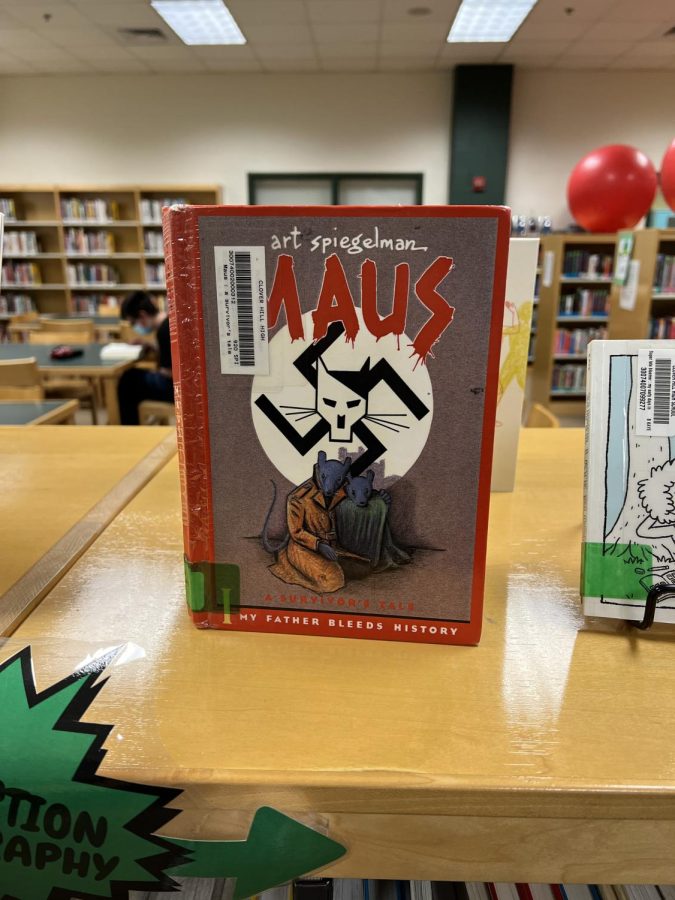General Assembly bill seeks to add parental veto to curriculum
Art Spiegelman’s 1980 graphic novel “Maus” has been a frequent target of those who wish to ban books in public schools.
As the 2022 Virginia General Assembly session commenced in Jan., a bill focusing on parental authority in education has been circulating through both the House of Delegates and the Senate. Originally introduced by Republican Senator Siobhan Dunnavant (VA-12), SB656 seeks to overhaul local school board policies in regards to parental notification of sexually explicit material.
The bill states that schools must notify parents regarding any content being covered that involves sexually explicit topics and must provide alternatives for any student whose parents object to the material.
If this bill is adopted, all Virginian school boards must adopt the policy by Jan. of 2023, but each school board is given the freedom to administer or add to the policy in any way they see fit. The bill explicitly states that while local school boards are given the freedom to add other regulations to the policy, it does not give them the right to censor books in primary or secondary schools.
In 2016, a bill with a similar premise was proposed after a Virginian mother wanted the book Beloved, which details the horrible effects of slavery, to be removed from her son’s required reading list. It was named “The Beloved bill”, and it almost became law until Terry McAuliffe, the governor at the time, vetoed it.
This year another bill was also proposed which involved requiring parental consent for students to get books with sexual content from school libraries. The bill died in the Senate, with members believing it left potential for excessive censorship in school libraries.
However, Chesterfield County already has policies set in place that allow parents to have a say in their children’s education, such as mandating that teachers provide alternative material if a parent raises concerns about the appropriateness of the content.
Senior Mirabella Lynam believes that this policy is a deterrent for the students and limits their education.
“Even if it comes at the expense of parents’ comfort, censorship of certain topics may prevent students from understanding perspectives outside of their own,” Lynam said. “Educational institutions would not promote inherently ‘inappropriate’ content.”
For Lynam, how the concept of something being inappropriate is subjective, and the bill will not fully resolve the problems parents have.
“With the observed ‘inappropriateness’ of the content being extremely subjective, it is impossible to regulate to the complete satisfaction of all parents,” Lynam said.
While Chesterfield County already had similar policies established, other counties around Virginia will have to adjust their curriculum to fit this legislation. According to journalist Jess Arnold from WUSA9, students in Fairfax County Public Schools have responded to the bill by distributing books they fear will be banned in schools. They purchased books such as Beloved and Maus, a graphic novel detailing the persecution of Jewish people during the Holocaust, and are giving them out to students for free.
“They’re hoping if the bill passes, they can help preserve the history in the pages of these books,” Arnold said.
The bill has not only created tension within counties, but the College Board has also taken a stance against the bill. Their website, apcentral.collegeboard.org, outlines how parents will not be given power over the curriculum.
“Parents do not define which college-level topics are suitable within AP courses; AP course and exam materials are crafted by committees of professors and other expert educators in each field,” College Board said.
The bill is currently approved by both the speaker of the House, Todd Gilbert, and the president of the Senate, Winsome Earle-Sears, and awaits Governor Youngkin’s signature to legalize the bill. With Youngkin’s past statements approving parental involvement in the curriculum of public schools, it is likely that this bill will be passed.
Only time will tell how education will be affected in the next year under the new regulations the bill will establish if it passes.

Sarah is a senior at Clover Hill High School and this is her first year working on the Chronicle. She has joined the Chronicle as a way to express her...








Mrs. Williams • Mar 17, 2022 at 9:02 am
Thank you for writing about this important topic, Ms. Craft. Fabulous job!